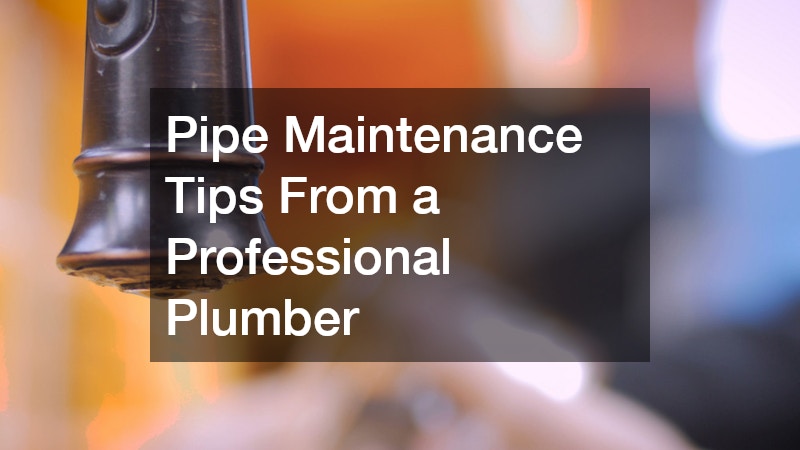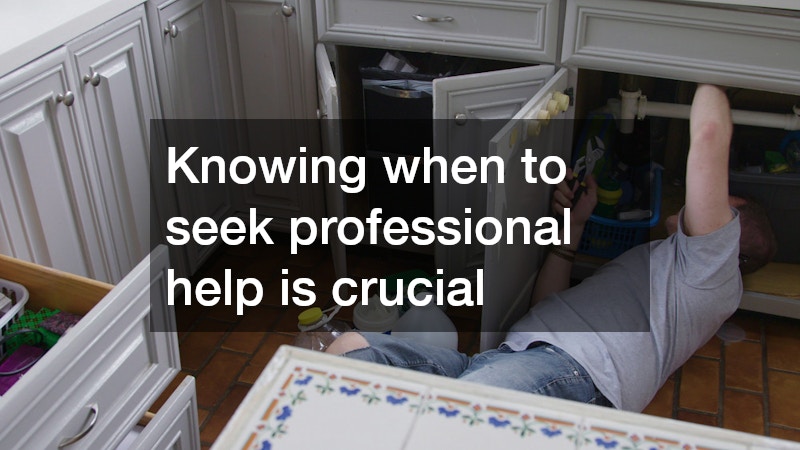
Pipe Maintenance Tips From a Professional Plumber
Contacting a plumber for proper pipe maintenance is essential for the longevity of your plumbing system. With the right knowledge, you can avoid common pitfalls that lead to significant plumbing issues.
The plumbing in your home is often out of sight and out of mind, but neglecting it can result in severe damage. Regular maintenance and awareness of your plumbing system can save you both time and money in the long run. Following these tips will not only promote the longevity of your pipes but also ensure the overall efficiency of your plumbing system.
Learn how a plumber can help with identifying potential problems and implementing effective maintenance strategies. Remember that the cost of preventative measures is significantly lower than paying for emergency repairs.
What Are the Most Common Causes of Pipe Damage?
Understanding the primary culprits behind pipe damage can help you take preventive measures. One of the most significant threats to your plumbing system is tree roots, which can infiltrate your pipes and cause blockages. These roots can expand, leading to cracks and eventual pipe failure if not addressed on time.
Water pressure issues can also be detrimental. High water pressure can strain your pipes, leading to leaks and burst pipes. Monitoring your home’s water pressure and ensuring it stays within the safe range can prevent unnecessary stress on your plumbing system.
Corrosion is another common issue, especially in older homes with galvanized pipes. Over time, corrosion can create rust and deteriorate the pipes, leading to leaks and other serious complications. Being aware of these potential threats allows homeowners to take proactive steps in maintaining their plumbing.
How Often Should I Inspect My Pipes?
Regular inspections can catch potential problems early. It is generally recommended that homeowners conduct visual inspections of their pipes at least once a year. During these inspections, look for signs of leaks, corrosion, or any unusual sounds that could indicate issues within the plumbing system.
For homes that are older or have had previous plumbing issues, quarterly inspections may be advisable. Inspecting your pipes more often in these cases can help identify ongoing problems before they escalate into costly repairs or replacements. This proactive approach could save you significant amounts of money over time.
Additionally, professional inspections should be scheduled as needed. Certified plumbers can thoroughly assess your plumbing system, providing insights into any potential weaknesses and advice on necessary maintenance. This combination of self-checks and professional input can keep your plumbing in optimal condition.
When Should I Call a Professional Plumber?
Knowing when to seek professional help is crucial. If you notice persistent leaks, odd sounds from your plumbing, or fluctuating water pressure, it is vital to consult a licensed plumber. These signs can indicate deeper issues within your plumbing system that require professional expertise to resolve.
Additionally, if your DIY attempts to fix a problem are unsuccessful, it’s best to call in a professional. Some plumbing issues can escalate quickly, leading to more significant damage if left unaddressed. Recognizing your limits can save your home from costly repairs and inconveniences.
Finally, if you are considering major renovations or pipe replacements, consulting with a plumber is an essential step. They can advise on the best practices, materials, and methods to ensure a successful plumbing upgrade, minimizing future repair needs and ensuring optimal performance.
What Are the Best Materials for Pipe Replacement?
If you find yourself needing to replace pipes, understanding available materials can help you make an informed decision. PVC (polyvinyl chloride) is a popular choice for drainage systems due to its affordability and resistance to corrosion. It is lightweight and easy to install, making it a favorite among DIY enthusiasts.
PEX (cross-linked polyethylene) is another great option, ideal for both hot and cold water systems. This flexible material can be easily maneuvered around obstacles, and it resists scale and chlorine buildup, ensuring longevity. PEX has gained popularity due to its ease of use and durability.
Copper pipes are considered a traditional choice, known for their reliability and longevity. They are resistant to rust and are an excellent option for both supply and drainage systems. While they can be more expensive, their lifespan and performance often justify the investment for many homeowners.
Maintaining your pipes can seem daunting, but with proper tips and regular inspections, you can ensure your plumbing system runs smoothly. By understanding the common causes of pipe damage and knowing how often to inspect your plumbing, you can avert costly issues in your home. Implementing effective maintenance strategies also empowers you to take care of your system.
Recognizing when to call a professional is equally vital, ensuring that you don’t ignore significant issues that could escalate. Finally, being informed about the best materials for replacement will help you make educated choices when it comes to upgrading or repairing your plumbing.
Don’t hesitate to reach out to a professional plumber for help when needed. By following these expert tips and being proactive about your pipe maintenance, you can preserve the integrity of your plumbing system and extend its lifespan.


